Avionics Technicians
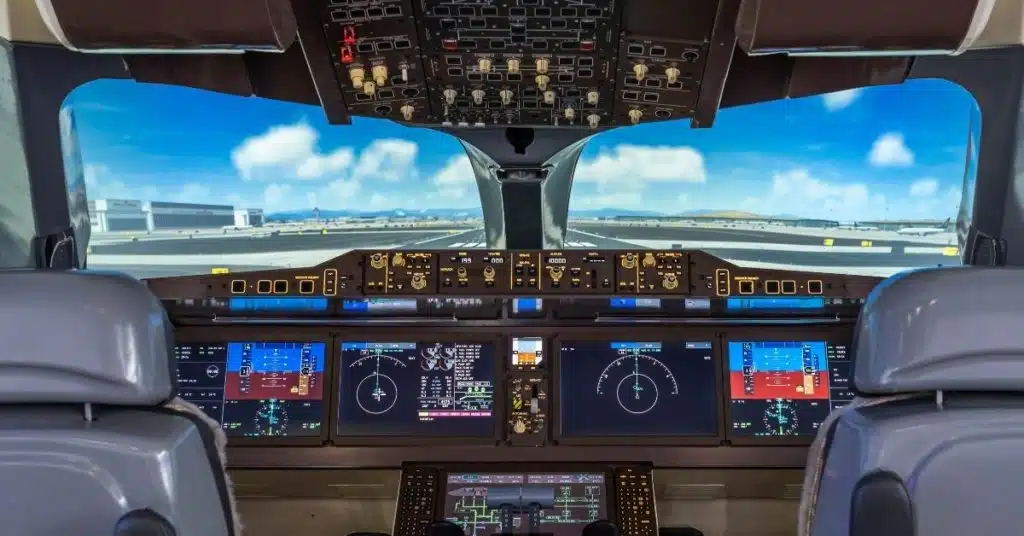
Avionics Technicians are highly skilled professionals who specialize in the maintenance and repair of aircraft electronics. They possess a unique combination of technical knowledge, troubleshooting ability, and mechanical aptitude that allows them to successfully diagnose, service, and maintain sophisticated avionic systems. Avionics Technicians not only require a comprehensive understanding of aircraft electrical systems but also must have excellent communication and organizational skills to effectively manage multiple tasks. These professionals are essential for the safe operation of modern aircraft, as they ensure that the onboard electronics function safely and properly at all times. If you’re looking for a career in aviation that combines technical know-how with customer service skills, then Avionics Technicians may be right for you!
1. Overview of Avionics Technicians – What They Do and the Qualifications Needed
Working as an avionics technician, you will be part of the aviation industry and responsible for installing, testing, troubleshooting, and maintaining a wide range of aviation electronics. This role requires technical skills and knowledge in aviation principles, aircraft systems functionality, and radio-frequency opportunities.
To qualify for this position, applicants typically need to have graduated from aviation engineering programs or a combination of military aviation training plus success in obtaining satisfactory scores on Civil Aviation regulatory exams. Avionics technicians assess aviation components to ensure they work correctly to support optimal air travel.
Therefore, critical thinking is crucial when it comes to troubleshooting any issues with aircraft. In addition to aviation experience and familiarity with safety regulations, employers look for workers who understand how electrical systems work within airplanes and helicopters.
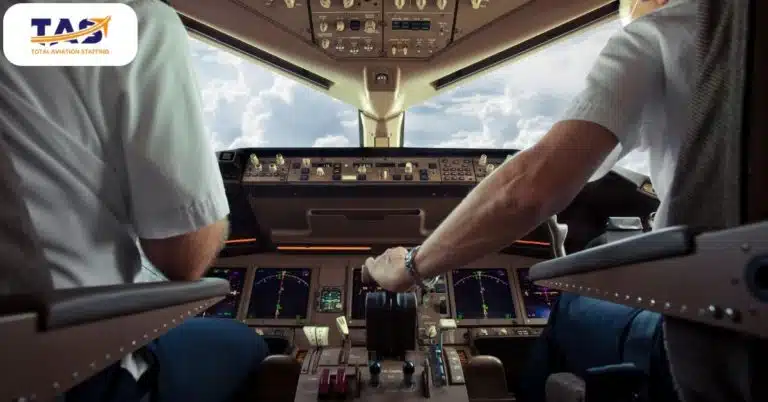
2. The Importance of Avionics Technicians in the Aviation Industry
Avionics technicians play a vital role in the aviation industry. They are responsible for keeping aircraft safe and efficient by installing, maintaining, troubleshooting, and repairing the various electronic subsystems on an aircraft. Without avionics technicians, air travel would be dangerous due to malfunctioning equipment. The importance of Avionics Technicians in the aviation industry includes:
Ensuring aircraft safety by performing regular maintenance checks
Understanding a variety of electrical and electronic systems within aircraft
Installing, repairing, and troubleshooting avionics equipment on planes and helicopters
Conducting tests to ensure that the aircraft’s systems are functioning correctly
Following instructions from engineers and aircraft technicians for the installation and repair of components
Staying up to date on the latest developments in aviation technology
Avionics technicians play an essential role in the aviation industry, working to make sure aircraft are safe and efficient. With a combination of technical experience, knowledge of electrical systems, and familiarity with safety regulations, avionics technicians can help ensure that passengers get to their destinations safely. If you’re looking for a career in the aviation industry, consider becoming an avionics technician and joining this vital profession.
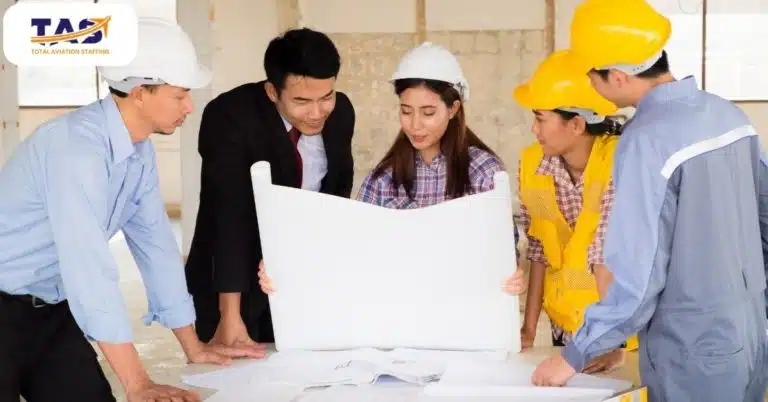
3. What Types of Jobs an Avionics Technician Can Pursue
Avionics technicians combine aviation expertise with technical maintenance capabilities for a number of job opportunities in the aviation industry. This career involves working on aircraft systems and components such as fuel and communication fleets.
Avionics technicians are responsible for providing servicing, maintenance, repair, and installation of aviation electronics, and they can pursue various roles such as aviation ground support, airport operations aviation management, testing, and engineering. Aspiring avionics technicians must complete specialized aviation education programs that focus on aviation electronics or degrees in aviation technology to apply for these available positions in the aviation field.
With proficiency in this skill set, avionics technicians have all the necessary tools to become valued members of the aviation team.
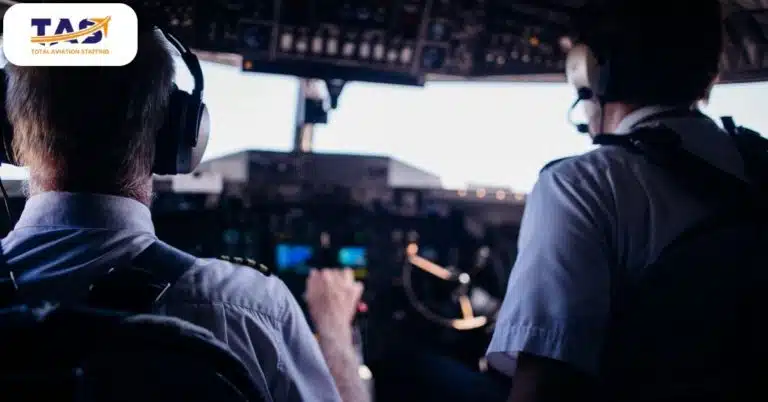
4. The Skills Required to Be a Successful Avionics Technician
Avionics technicians are highly sought-after professionals who specialize in the maintenance and installation of avionic systems. This includes everything from troubleshooting and repairing to inspecting, maintaining, and installing aircraft components such as fuel fleets, communication devices, navigation systems, etc. To be a successful avionics technician requires a combination of technical knowledge, critical thinking skills, and an understanding of various electrical and electronic systems. The following are some key skills required to excel in this field:
Technical Knowledge – Avionics technicians should have a solid foundation in mathematics and engineering fundamentals as well as experience with computers and software applications.
Analytical Skills – Avionics technicians need to be able to identify problems and come up with innovative solutions.
Attention to Detail – Avionics technicians must pay close attention to details and be able to spot small but significant issues, such as faulty wiring or loose connections.
Communication Skills – Effective communication is vital in the aviation field, so avionics technicians need to be able to understand and communicate information clearly.
Safety Consciousness – Avionics technicians must be aware of safety regulations and procedures when working with aircraft to ensure the safety of passengers and crew.
Avionics technicians are an essential part of the aviation industry, providing a vital service for passengers and crew alike. With the right combination of technical knowledge, critical thinking skills, and attention to detail, avionics technicians can ensure that planes stay safe in the air. If you’re looking for a career in aviation technology, becoming an avionics technician may be the perfect fit for you.
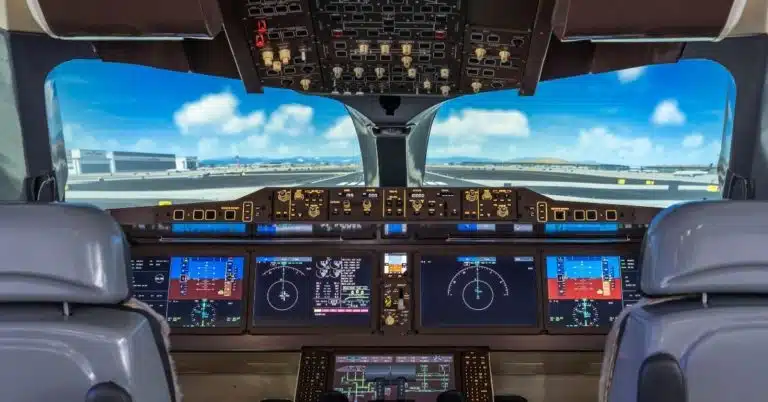
5. Working Conditions for an Avionics Technician
Avionics technicians generally work in a variety of environments depending on the type of job they are performing. Most avionics technicians work at airports, aircraft maintenance facilities, or other aviation-related businesses. Technicians may also be required to travel to different locations for service calls or emergency repairs.
Avionics technicians typically work indoors in areas with limited space and loud noise, such as aircraft hangars or repair shops. They may also have to work in cramped areas whilst troubleshooting or replacing parts. Working outdoors can also be a possibility in some cases, where technicians are required to inspect aircraft components for damage or check wiring connections and other systems for functionality.
Avionics technicians are an important part of the aviation industry, and their work is essential to keeping planes safe and running efficiently. With the right training, tools, and safety protocols in place, avionics technicians can ensure that passengers have a safe and enjoyable flight experience.
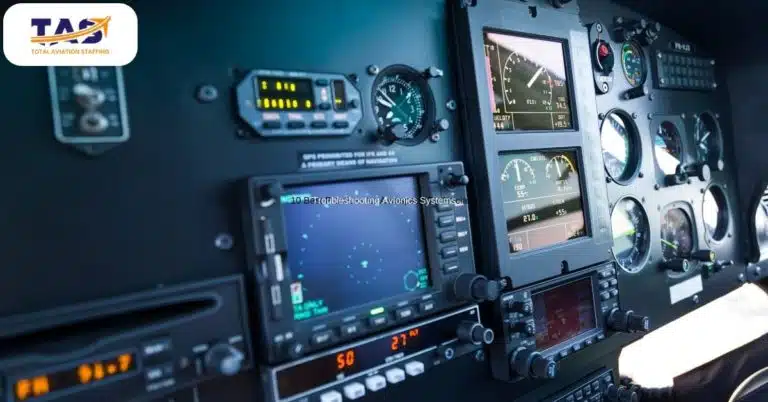
6. Career Paths Available for Those Pursuing a Career as an Avionics Technician
Avionics technicians are an essential part of the aviation industry, providing maintenance and installation services to ensure the safety of aircraft. Those pursuing a career in avionics can choose from a variety of paths, with each offering different opportunities for growth and advancement. The following are some possible career paths available for those looking to pursue a job as an avionics technician:
Aircraft Maintenance Technician – Responsible for performing maintenance, repairs, and inspections on aircraft systems.
Avionics Systems Technician – Installs, troubleshoot, and maintains avionics equipment in order to keep aircraft running safely.
Flight Test Engineer – Works closely with engineers in conducting safety tests of new aircraft designs.
Avionics Design Engineer – Designs and develops new avionics systems for airplanes, helicopters, and other aircraft.
Military Avionics Technician – Works within the military to provide maintenance and repairs on military aircraft.
A career as an avionics technician can be a rewarding one, with plenty of opportunities for growth and advancement. With the right training and experience, avionics technicians can help ensure that aircraft stay safe in the air. With the various career paths available, those looking to pursue a job in avionics will have ample opportunity to find the perfect fit for their skills and interests.

7. How to Become Certified as an Avionic Technician
Avionics technicians are an essential part of the aviation industry, providing maintenance and installation services to ensure the safety of aircraft. If you’re looking for a career in aviation technology, becoming an avionics technician may be perfect for you. Here are five steps to becoming certified as an avionics technician:
Obtain appropriate education: The first step to becoming an avionics technician is to obtain the appropriate education. Those looking to pursue a career in avionics should consider earning a two-year Associate’s degree in Aviation Technology or Electronics Technology.
Gain experience: With the right education under your belt, it’s important to gain experience in the field in order to become certified. Avionics technicians can gain experience through internships or entry-level positions in aviation repair shops, aircraft maintenance facilities, and other related businesses.
Pass FAA exams: Those looking to become certified aviation technicians must pass the Federal Aviation Administration (FAA) examinations. The exams cover topics such as airframes, systems, and avionics.
Obtain certifications: After passing the FAA exams, aspiring technicians must obtain their certification in order to be hired for a job. Certification can range from an Aviation Maintenance Technician (AMT) license to certified airframe and powerplant technician licenses (A&P).
Maintain certifications: Once certified, avionics technicians must maintain their certifications in order to stay employed. Technicians should take continuing education classes and attend seminars to ensure they stay up-to-date with current safety regulations and best practices.
By following these steps, those looking to pursue a career as an avionics technician can become certified and ready to work in the aviation industry. With the right training and experience, avionics technicians can ensure that aircraft stay safe in the air.
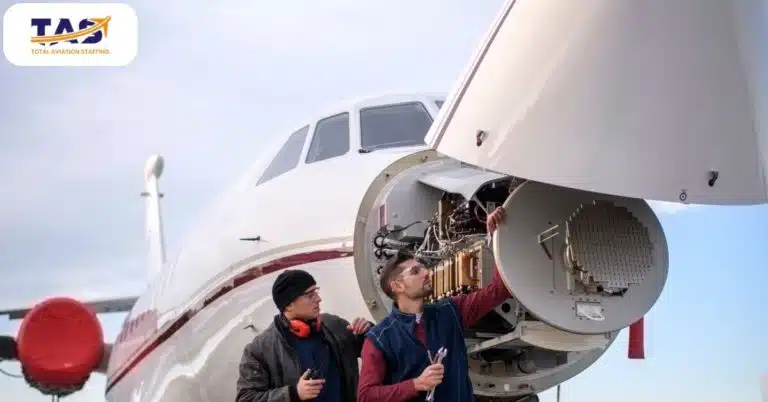
8. Common Challenges and Rewards of Working as an Avionics Technician
Being an avionics technician can be a challenging yet rewarding career. Avionics technicians are responsible for maintaining, repairing, and installing all components related to aircraft electronics and aviation systems. While this is a vital job for the safety of aircraft, it can also pose some unique challenges. Here are some common challenges as well as rewards that come with working as an avionics technician:
• Common Challenges: One of the biggest challenges for avionics technicians is keeping up with changes in technology. Avionics technicians must stay up-to-date on the latest regulations and best safety practices to ensure that aircraft remain safe in the air. Additionally, avionics technicians must often be able to troubleshoot and solve problems quickly, which can be a challenge.
• Common Rewards: Despite the challenges of the job, working as an avionics technician comes with many rewards. Avionics technicians get to work on interesting and complex projects that require creativity and problem-solving skills. Additionally, avionics technicians are essential for ensuring that aircraft remain safe in the air, which can be a rewarding experience.
Working as an avionics technician requires hard work and dedication, but it can also be a highly rewarding career choice. Avionics technicians are essential for the aviation industry and make sure that aircraft remain safe in the sky. With proper education and experience, those looking to become certified avionics technicians can make a difference in the world of aviation.
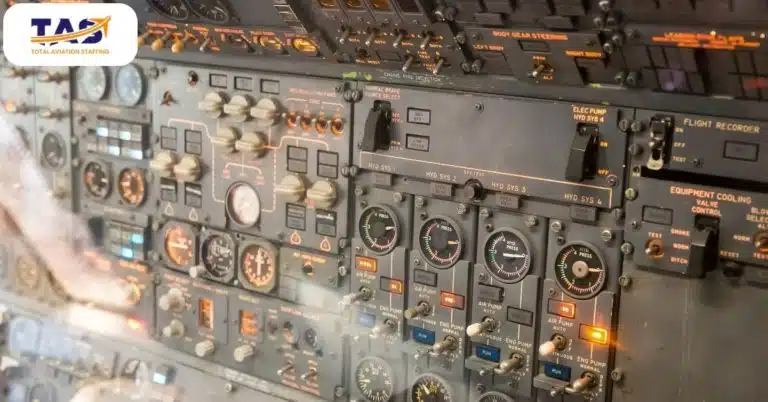
9. Summary of the Role Played by Avionics Technicians in the Aviation Industry
Avionics Technicians are highly trained professionals who play a critical role in the aviation industry. Their primary responsibility is to install, operate, maintain, and repair aviation electronics systems including flight navigation and instruments, communications equipment, and radar systems.
They debug integrated avionic systems in order to ensure the proper operation of aircraft safety systems. Avionics Technicians use specialized testing equipment to troubleshoot aviation components and inspect them for damage and malfunctions.
They must have excellent problem-solving skills as well as an in-depth understanding of aviation regulations, aviation technical orders, and maintenance instructions. In short, these professionals keep today’s aircraft running smoothly by ensuring that aviation electronics remain in optimal condition.
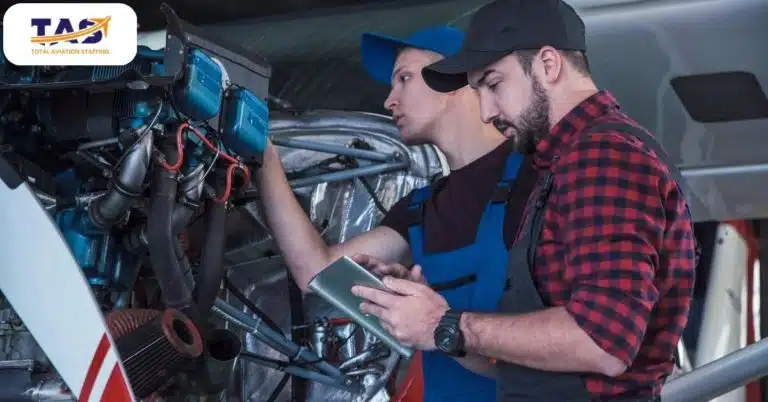
In Conclusion
Avionics Technicians play a critical role in the aviation industry by ensuring that aircraft remain safe in the sky. With proper education and experience, those looking to become certified avionics technicians can make a difference in the world of aviation. From installing and repairing equipment to ensuring strict compliance with safety regulations, Avionics Technicians are essential for keeping aircraft safe and functional. With the right technical knowledge and problem-solving capabilities, Avionics Technicians can make a career for themselves in the ever-evolving field of aviation.
The sky is the limit for those who are passionate about aircraft safety and technology – so if you’re looking for an exciting career in avionics, now is the time to take action! With hard work and dedication, you can make a real difference in the aviation industry.
